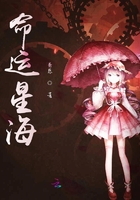myself in this instance, as well as on former occasions when Ihave thought proper to mention your name in public. All will agree that a man guilty of theft, robbery, or murder, has forfeited the right to concealment and private life; that the community have a right to subject such persons to the most complete exposure. However much they may desire retirement, and aim to conceal themselves and their movements from the popular gaze, the public have a right to ferret them out, and bring their conduct before [11] It is not often that chattels address their owners. The following letter is unique; and probably the only specimen of the kind extant. It was written while in England.
<331>the proper tribunals of the country for investigation. Sir, you will undoubtedly make the proper application of these generally admitted principles, and will easily see the light in which you are regarded by me; I will not therefore manifest ill temper, by calling you hard names. I know you to be a man of some intelligence, and can readily determine the precise estimate which I entertain of your character. I may therefore indulge in language which may seem to others indirect and ambiguous, and yet be quite well understood by yourself.
I have selected this day on which to address you, because it is the anniversary of my emancipation; and knowing no better way, Iam led to this as the best mode of celebrating that truly important events. Just ten years ago this beautiful September morning, yon bright sun beheld me a slave--a poor degraded chattel--trembling at the sound of your voice, lamenting that Iwas a man, and wishing myself a brute. The hopes which I had treasured up for weeks of a safe and successful escape from your grasp, were powerfully confronted at this last hour by dark clouds of doubt and fear, ****** my person shake and my bosom to heave with the heavy contest between hope and fear. I have no words to describe to you the deep agony of soul which Iexperienced on that never-to-be-forgotten morning--for I left by daylight. I was ****** a leap in the dark. The probabilities, so far as I could by reason determine them, were stoutly against the undertaking. The preliminaries and precautions I had adopted previously, all worked badly. I was like one going to war without weapons--ten chances of defeat to one of victory. One in whom I had confided, and one who had promised me assistance, appalled by fear at the trial hour, deserted me, thus leaving the responsibility of success or failure solely with myself. You, sir, can never know my feelings. As I look back to them, I can scarcely realize that I have passed through a scene so trying.
Trying, however, as they were, and gloomy as was the prospect, thanks be to the Most High, who is ever the God of the oppressed, at the moment which was to determine my whole earthly career, His grace was sufficient; my mind was made up. I embraced the golden opportunity, took the morning tide at the flood, and a free man, young, active, and strong, is the result.
I have often thought I should like to explain to you the grounds upon which I have justified myself in running away from you. Iam almost ashamed to do so now, for by this time you may have discovered them yourself. I will, however, glance at them. When yet but a child about six years old, I imbibed the determination to run away. The very first mental <332>effort that I now remember on my part, was an attempt to solve the mystery--why am I a slave? and with this question my youthful mind was troubled for many days, pressing upon me more heavily at times than others. When I saw the slave-driver whip a slave-woman, cut the blood out of her neck, and heard her piteous cries, I went away into the corner of the fence, wept and pondered over the mystery.
I had, through some medium, I know not what, got some idea of God, the Creator of all mankind, the black and the white, and that he had made the blacks to serve the whites as slaves. How he could do this and be _good_, I could not tell. I was not satisfied with this theory, which made God responsible for slavery, for it pained me greatly, and I have wept over it long and often. At one time, your first wife, Mrs. Lucretia, heard me sighing and saw me shedding tears, and asked of me the matter, but I was afraid to tell her. I was puzzled with this question, till one night while sitting in the kitchen, I heard some of the old slaves talking of their parents having been stolen from Africa by white men, and were sold here as slaves. The whole mystery was solved at once. Very soon after this, my Aunt Jinny and Uncle Noah ran away, and the great noise made about it by your father-in-law, made me for the first time acquainted with the fact, that there were free states as well as slave states.
From that time, I resolved that I would some day run away. The morality of the act I dispose of as follows: I am myself; you are yourself; we are two distinct persons, equal persons. What you are, I am. You are a man, and so am I. God created both, and made us separate beings. I am not by nature bond to you, or you to me. Nature does not make your existence depend upon me, or mine to depend upon yours. I cannot walk upon your legs, or you upon mine. I cannot breathe for you, or you for me; I must breathe for myself, and you for yourself. We are distinct persons, and are each equally provided with faculties necessary to our individual existence. In leaving you, I took nothing but what belonged to me, and in no way lessened your means for obtaining an _honest_ living. Your faculties remained yours, and mine became useful to their rightful owner. I therefore see no wrong in any part of the transaction. It is true, I went off secretly; but that was more your fault than mine. Had I let you into the secret, you would have defeated the enterprise entirely;but for this, I should have been really glad to have made you acquainted with my intentions to leave.















